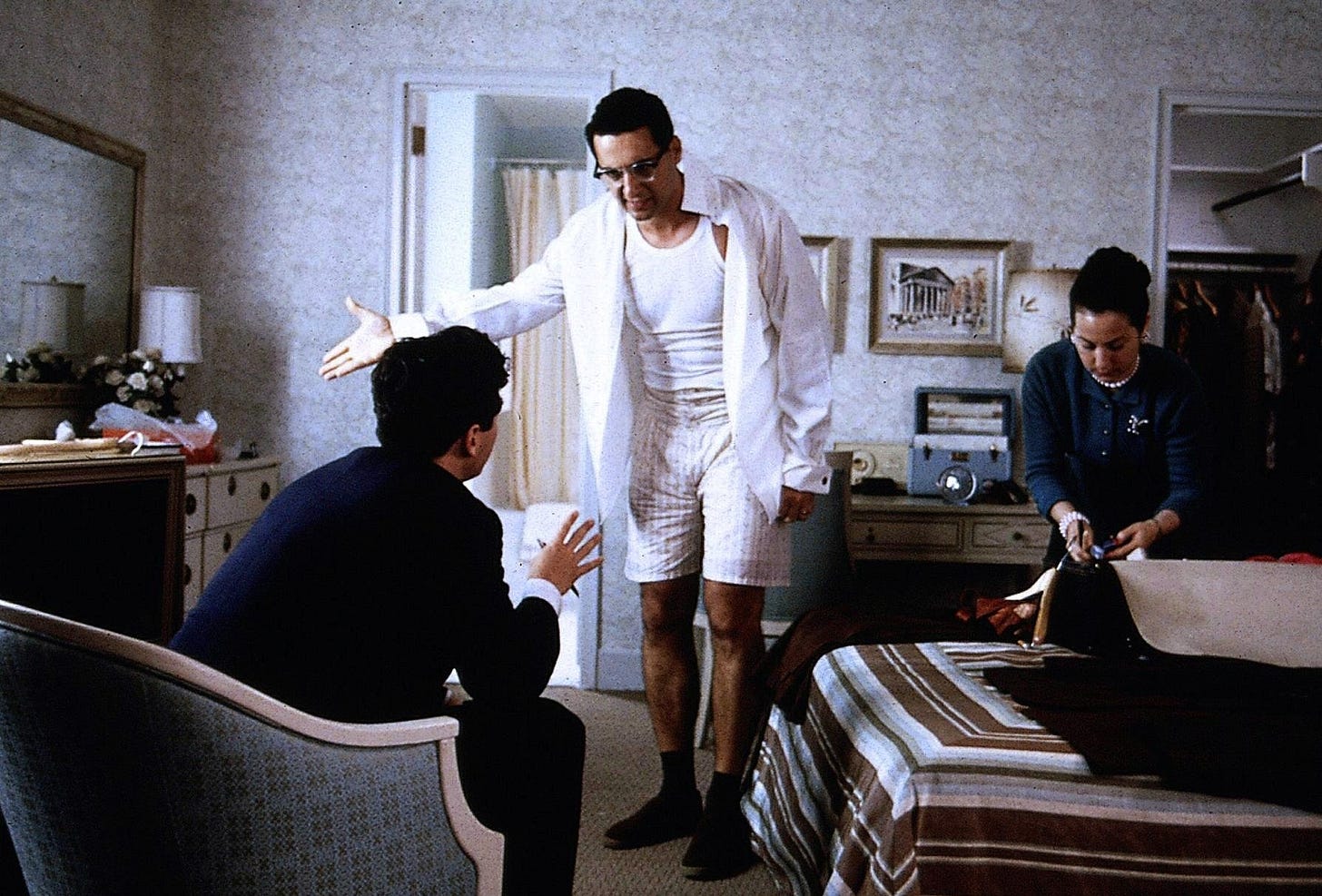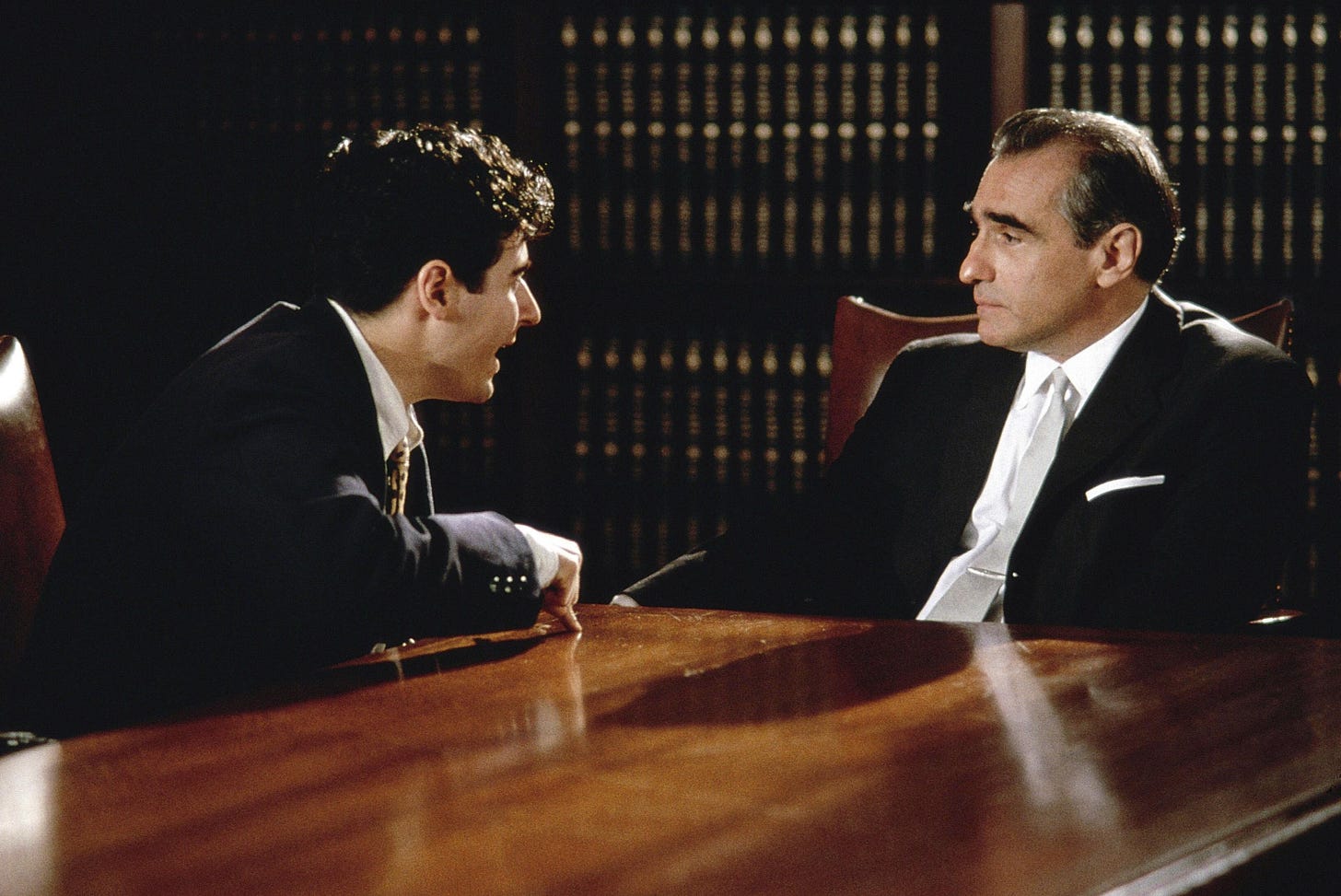Spoilers for Quiz Show (1994)
Robert Redford’s workmanlike take on the 1950s quiz show scandal in America is one of those strange adaptions where the fictionalisation is less dramatic than the story it’s telling. When a congressional subcommittee heard evidence that quiz shows such as Twenty-One were being fixed by producers so that popular contestants would continue their winning streaks, therefore boosting ratings, it completely changed the American television industry.
While various quiz shows would premiere after the 1960 hearing, it wasn’t until Jeopardy! in 1964 that they became accepted by the public again, with the focus being on far lower stakes with a capped maximum prize and rules to limit the amount of consecutive appearances contestants could have. Almost overnight, one of the most popular forms of entertainment was completely changed.
In an age of 24-hour entertainment and prestige television, it might be hard to imagine that a quiz show could cause so much controversy. However, when quiz shows were first brought to television the medium was still relatively new. Radio was incredibly popular and, in parallel to the must-watch television brought in by companies like HBO half a century later, televised shows became appointment viewing to those lucky enough to own a set.

You only need to go back to 2001 to see that quiz shows could still fuel controversy. In the British edition of Who Wants to be a Millionaire? Charles Ingram received cues from his wife, who sat in the audience and cheated to win the jackpot. While hardly the level of corruption seen in Quiz Show, it still caused enough controversy to be front page news, with a highly publicised trial and various adaptations in the years since.
Much of Redford’s film is focused on Richard Goodwin (Rob Morrow), a congressional lawyer on whose memoirs the film is based. He travels to New York to investigate rumours of rigged quiz shows after hearing about a sealed grand jury investigation. Herb Stempel (John Turturro), a contestant on the show Twenty-One, had tried to take legal action after being coerced into abandoning his winning streak (itself controlled by the producers) in favour of the affluent and better-looking Charles Van Doren (Ralph Fiennes).
In speaking to both Stempel and Van Doren, Goodwin becomes convinced that the show has been rigged but Stempel’s volatile personality is damaging to the case, while Van Doren flat out refuses to corroborate the evidence. Legal proceedings do not become a sure thing until a previous contestant reveals that he not only had access to the show’s questions but that he mailed them to himself two days before the show aired.
With three contestants on board (Van Doren would eventually give evidence to the House Committee in a decent scene that highlights how the rich and handsome are treated over others), Goodwin subpoenas the producers of Twenty-One and the CEO of the show’s sponsor Geritol. Due to legal reasons, Martin Rittenhome (Martin Scorcese) is a fictionalised version of the Geritol CEO Matthew Rosenhaus – reportedly closer in his mannerisms to the president of Revlon, which sponsored The $64,000 Question, another show caught up in the scandal.
Goodwin delivers the subpoena and the questions that Rittenhome will be asked to answer. It’s a neat little scene that really highlights the change that America was going through at the time of the scandal. The late 50s was arguably the end of America’s innocence. Social changes throughout the 60s and the escalation of America’s involvement in the Vietnam War just two years after this scandal led to increased cynicism about politicians and corporations.
It also desensitised the population. When Quiz Show was released in 1994, critics rightly pointed out that our threshold for shock and horror had changed. Villains didn’t just disappear anymore, they remained in the public eye, appeared on talk shows, and wrote memoirs. They capitalised on their failures to become even more successful.
Even Who Wants to be a Millionaire? cheat Charles Ingram went on to become a novelist and by the time his scandal came to light, people were less shocked by the cheating and more intrigued by the story.
With the benefit of hindsight, Quiz Show positions Rittenhome as a man who knows exactly what the outcomes will be. After Goodwin goads him, Rittenhome points out that it doesn’t matter what he knew as a sponsor of the show, it only matters what Congress can prove he knew. The producers of the show will take the fall to protect their bosses and quietly return to television when the dust has settled.
“Dan Enright? Dan Enright wants a future in television. The public has a short memory. Corporations never forget. It might take five years. Ten years. But he'll be back. NBC goes on. Geritol goes on. Makes me wonder what you hope to accomplish.”
While not everyone in the quiz show scandal was as lucky, Enright (played in the film by David Paymer) did indeed return to television, along with host Jack Barry (Christopher McDonald). Enright was working on Canadian television by the early ‘70s, and by the late ‘70s and almost completely revived his career, reviving Break the Bank and Tic-Tac-Dough, both of which found success in the restructured quiz show market.
“Even the quiz shows'll be back. Why fix them? You could accomplish the same thing just making the questions easier. The audience wasn't tuning in to watch some display of intellectual ability. They just wanted to watch the money.”
While Quiz Show may not be a flashy, or even particularly memorable biopic, this one scene encapsulates the feeling of America at the time. On the precipice of something darker. A period of development and prosperity after World War 2 was about to come crashing down, and people realised that they couldn’t trust the friendly faces on their TV.
There’s also a wonderful bit of irony that Martin Scorsese, a man who has had to defend the excessive violence in his films and its impact on America’s youth to overwrought associations, here plays a man who is partly responsible for destroying that trust in television.
Director: Robert Redford
Writer: Paul Attanasio. Based on the memoir Remembering America: A Voice from the Sixties by Richard Goodwin
Starring: John Turturro, Rob Morrow, Ralph Fiennes









This was very informative. Thanks for writing :)